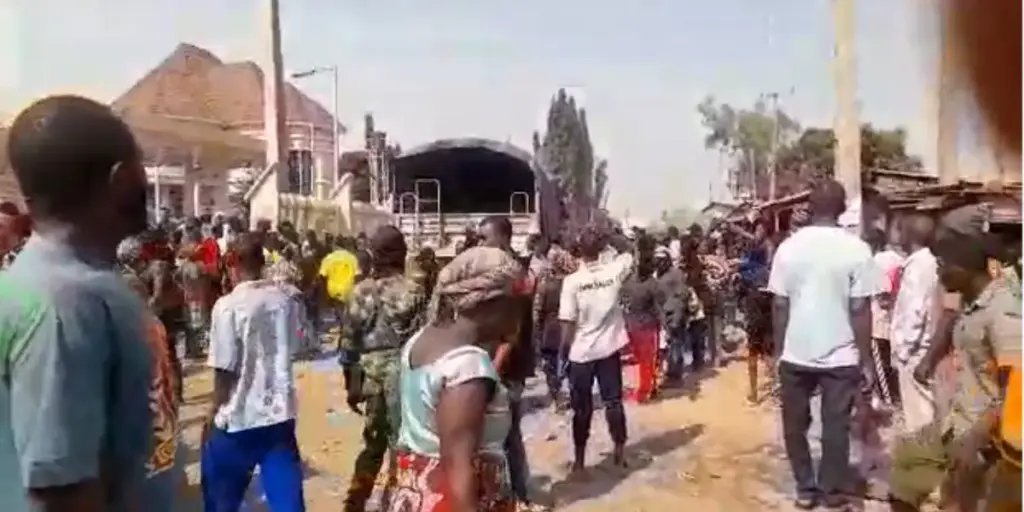Operations at a 28,000-barrel-per-day Escravos oil production facility in Ogidigben have been halted following a protest by members of the Itsekiri community, one of the seven communities in Ugborodo, Niger Delta.
The disruption may further jeopardize the Federal Government’s target of producing 2.06 million barrels of crude oil per day in 2025 and could lead to additional revenue losses.
This comes amid global economic challenges and past tariff impositions, including a 14% tariff placed on Nigerian exports to the United States by the administration of President Donald Trump.
The protest erupted as tensions rose over a proposed ward delineation by the Independent National Electoral Commission (INEC), which the Itsekiri claim disproportionately favors the Ijaw and Urhobo ethnic groups.
The protesters allege that new wards were created for the Ijaw and Urhobo, while the number of wards in historically Itsekiri areas was reduced.
The protest, which involved youths and women, stretched across the three Warri Local Government Areas.
Some community leaders, including those from the Okere-Urhobo kingdom in Warri South, also rejected INEC’s proposal, claiming their communities were shortchanged.
According to protesting Itsekiri leaders, their population size warrants at least four to six wards, not the single ward currently recommended by INEC.
Sources revealed that the Itsekiri have vowed to escalate their actions and are threatening more shutdowns of critical oil and gas infrastructure if the ward delineation exercise is not reversed and reviewed.
The ward delineation process stems from a Supreme Court judgement mandating a fresh exercise. INEC had presented a report for review by the affected ethnic nationalities, urging them to examine the proposals and submit their positions.
According to INEC’s report, Warri South LGA has 20 wards, with the Urhobo controlling nine, the Itsekiri eight, and the Ijaw three. Warri North LGA has 18 wards, with the Ijaw controlling ten and the Itsekiri eight.
Warri South-West LGA has 19 wards, with the Ijaw allotted fourteen and the Itsekiri five.
With mounting tensions and growing threats of further disruption, stakeholders are urging INEC and the Federal Government to engage with the communities to ensure peace and equitable representation.















